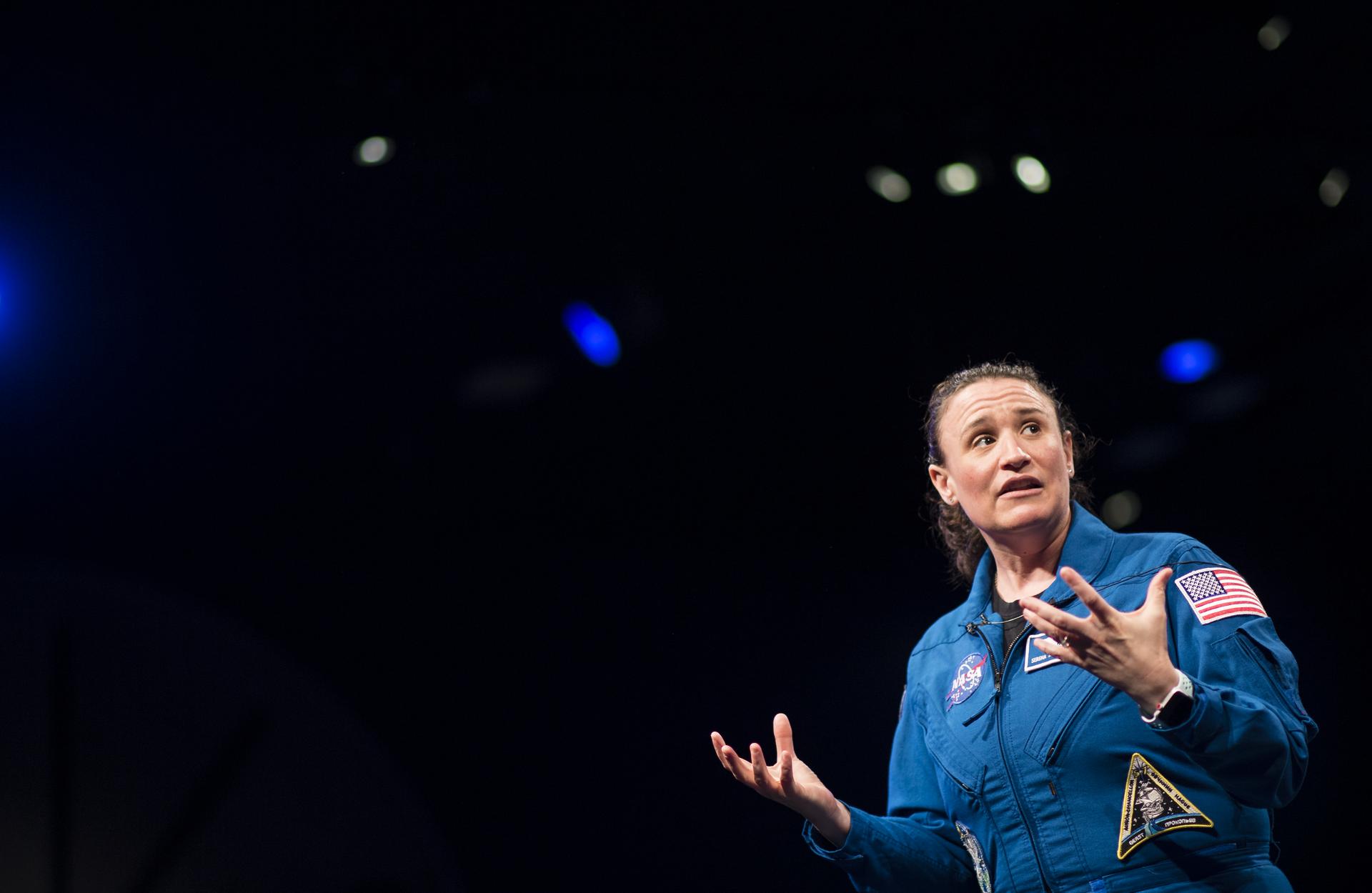50 Years After Moon Landing: Experts Gather In Atlanta To Talk Future Of Space Program

Dr. Serena Auñón-Chancellor, a NASA astronaut, is one of the experts in Atlanta this week to discuss the future of the space program.
Courtesy of NASA
This summer marks 50 years since the moon landing.
However, at a convention being held in downtown Atlanta this week, the conversation is all about space exploration’s future, not the past.
Helping to lead that conversation is Dr. Serena Auñón-Chancellor, who has flown two missions on the International Space Station.
As both a doctor and a NASA astronaut, she’s interested in how research in space can contribute to advancements in medicine here on earth.
“The science on ISS that we do is to further health on the planet, because we look at disease processes like cancer, like Alzheimer’s, like Parkinson’s,” she said Tuesday. “Things that we aren’t able to study down here, because of that unique micro-gravity environment, we are able to up there.”
Auñón-Chancellor is among the experts in town this week for the annual International Space Station R&D conference.
Folks here have high hopes for the future. Not just in terms of research, but also where the space program will be in another 50 years.
“I hope we have permanent habitats on the moon, I hope we have permanent habitats on Mars, I see us conducting science on the moon science on Mars and maybe even beginning to consider where else can we go,” Auñón-Chancellor said.
She said creating a permanent habitat on another planet presents a number of challenges, but notes NASA has conquered plenty of those in the past.
“I think we’re going to get there. I mean, people believed we weren’t going to get to the moon back in the ‘60s,” she said. “And we did. So I know we can do it.”
She sees it as part of her job to be a role model to young girls who want to be astronauts, just like she did.
Auñón-Chancellor says she remembers being 8 years old and watching shuttles take off. Now, she is a part of a generation of astronauts who she hopes will inspire the next.
She says, first up, should be a trip back to the moon.
Experts at the conference stressed doing so by 2024. Specifically, sending the first woman to the moon.
“It’s really neat to see that charged to put the first woman on the moon, because the first woman on the moon should be an American,” she said.








